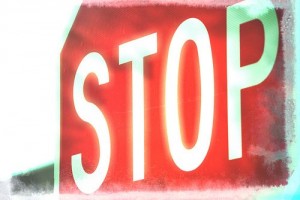 Bankruptcy, any chapter, comes with a built-in injunction: the automatic stay.
Bankruptcy, any chapter, comes with a built-in injunction: the automatic stay.
The mere act of filing of a bankruptcy case triggers the issuance of a court order probiting the continuance of any action by any creditor against the debtor or the debtor’s property. 11 U.S.C. 362. (Exceptions below).
Creditors and bill collectors must stop collection activities when they first learn of a bankruptcy filing.
The stay has legal effect even if the creditor hasn’t gotten official notice or a copy of the filing. It’s no defense to say “I haven’t gotten notice from the court”.
In Chapter 13, the stay even protects co debtors who are liable with the debtor on consumer debts.
The automatic stay gives the debtor a breathing space. The bankruptcy case brings all of the debtor’s assets and all of the creditors into the same court, where the rights of all concerned can be balanced.
So the stay also protects creditors from being aced out of payment by other, more aggressive creditors.
Stay limited for repeat filers
If this isn’t your first bankruptcy, the stay may be limited.
When the debtor has had a prior bankruptcy case dismissed within the past year, the stay lasts only 30 days.
If the debtor had two or more cases pending in the past year but dismissed, there is no stay at all.
The debtor in those situations must file a motion with the court in order to have the protection of the automatic (or not so automatic) stay.
What the stay prohibits
The automatic stay prohibits
- Beginning or continuing law suits
- Collection calls
- Repossessions
- Foreclosure sales
- Garnishment or levies
How long does stay last
The automatic stay remains in effect until
- The bankruptcy judge lifts the stay at the request of a creditor;
- The debtor gets a discharge;
- The case is closed; or
- The item of property is no longer property of the estate.
Thus in Chapter 7, the stay may prevent immediate foreclosure on a debt secured by real estate. However, the stay will expire, and the creditor be freed to proceed, when the debtor gets a discharge. (This assumes that there is no non exempt equity in the property for the bankruptcy estate; if there is equity, then the asset remains property of the estate and protected.)
In Chapter 13, the stay remains in effect for the life of the Chapter 13 plan.
Stay permanent upon discharge
When the debtor gets a discharge, the automatic stay is replaced by a permanent injunction prohibiting creditors from all of those actions with respect to discharged pre petition debts that the automatic stay prohibited.
Outside the stay
The automatic stay does not stop all legal proceedings. Excluded from the stay are
- Criminal proceedings
- Actions for a family support order or the modification of such order
- Actions to collect support from property that is not property of the estate
- Tax audit, demand for tax returns or assessment of tax (collection of tax is still stayed: the tax authorities, to their chagrin, are subject to the stay, just like other creditors).
Violations of the stay
Anyone who willfully violates the stay in the case of an individual is liable for actual damages caused by the violation. Those damages include attorneys fees to stop the violation and any other damages the debtor can prove up.
In egregious circumstances, the violator may be liable for punitive damages.
The court usually takes several days to several weeks to mail creditors notice of the bankruptcy. If a collection action is looming, the debtor or debtor’s counsel may want to give actual notice by phone or fax to creditors who might otherwise take action without knowledge of the stay.
Any action the creditor takes in violation of the stay has no legal effect: it’s void or voidable. The offending party has to unwind the void action and restore the debtor to the situation he was in before the stay was violated.
More
Attempts to collect after the discharge
Your house after the discharge
When the automatic stay is lifted
Will bankruptcy stop foreclosure
Image courtesy of Steve A. Johnson.
